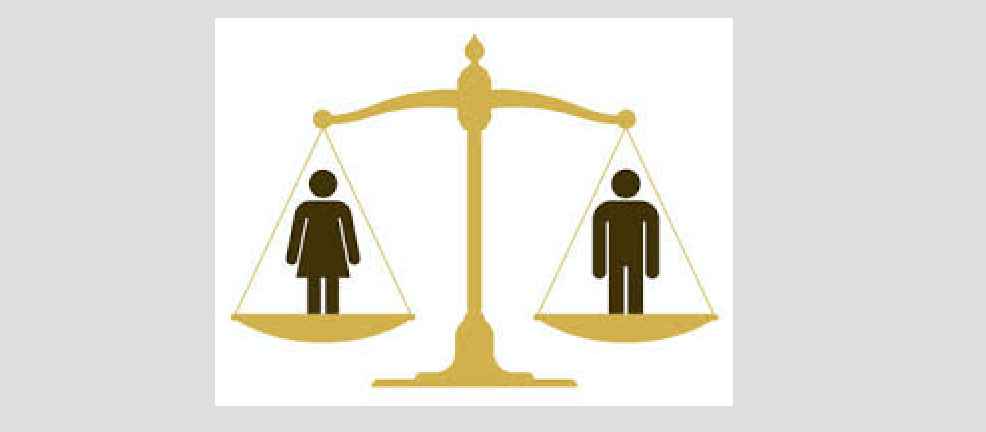Introduction
Let me be the first to say, that in my lifetime I have heard about gender inequality on countless occasions. Throughout my education, it was drilled into my mind, and the minds of others like me, that being a female will prove to be challenging when attempting to climb the corporate ladder in my chosen profession.
When I first stepped into law school 2 years ago, I was (and still am) an ambitious and driven law student who always dreamt of becoming a big shot partner at a reputable law firm. I quickly came to realize that, in the legal profession these traits might not be enough for me to achieve my professional development goals.
Is it for my lack of qualification or my lack of drive? I want to assume (and I hope this to be true) that it is not. Unfortunately, this is the reality that many young and seasoned, very qualified, female lawyers face throughout the course of their careers. Over the years society has decided that women are not sound investments. Mark A. Cohen recently touched on this topic in his article, “BigLaw’s Gender Diversity Problem is The Traditional Model Itself.” He describes how women have historically been “punished” for seeking work-life balance, especially when it comes to child rearing and maternity leaves. So what I am hearing is that being genetically predisposed to bare children is the reason fewer women (who work very hard, if not harder than men in some instances) are not fit to climb the corporate ladder and sit in the top ranks of the legal profession. This seems very absurd and unfair, considering we are living in the 21st century. However, this is the reality.
Despite recent initiatives to neutralize the legal profession and tackle the gender bias that exists, the presence of women in the legal profession is seemingly low, especially in senior and partnership positions. The presence of the white male continues to dominate in many law firms. We know that women have been attending law school in equal numbers to our male counterparts, but this fails to be reflected in practice. I would like to argue that the reason for this is that even with the increased initiatives to recruit more qualified female lawyers, there is little done to keep them in the profession and allow them to grow in an environment that meets their needs.
What I mean by this is that hiring an equal number of female and male associates is not enough to change the gender bias. Internal practices and personal views that have been embedded in our society, particularly the “superior” male, need to be altered. Gender roles in the 21st century have changed significantly, and we now see more males assuming domestic roles and contributing to historically female “jobs”. Paternity leave is becoming much more common than it once was. To me, this equalization in the domestic sphere should naturally coincide in the employment sector. If a partner will support a male associate and afford paternity leave to him then why condone a female who may or may not even take maternity leave, simply because she is predisposed to and has a right to, if she so chooses.
The obstacle remains in changing firm culture and views in order to adequately address the gender bias issues. This is obviously no easy task. I suggest we start at the bottom and work our way up, and hope for a slow, seamless change because history tells us that dramatic change in the legal profession is unlikely. Bringing up these issues and engaging in active discussions in classroom settings throughout law school, and in law firms will, slowly but surely, impact and diminish dated attitudes about women in the legal profession. It has been shown that simply hiring more women and meeting the “quota” will not be enough to change the current gender disparities. We need to demand more from the profession and that means accepting and acknowledging women as equal to men despite our genetic differences. The 21st century needs to foster change, and we need to be the ones to implement it, because we have gone too long working in a profession full of ancient attitudes.


As a fellow female entering this legal profession, I agree that that this is a pressing issue that needs to addressed with real, structural changes. Closing the gap between male and female associate/partners is definitely a start, but as you stated, it is not enough.
I believe that structural changes in law firms can start small – perhaps implementing a day-care at the firm, adapting flexible working hours for new moms, etc. I think that these initiatives help entrench the perspective that raising a family is an important priority for all genders and does not rest solely on the woman. By doing so, the hope is that females in the legal profession are no longer regarded as a “bad investment” but rather, placed on equal footing as the male counterpart and celebrated for achieving this work-life balance.
The even footing to which Grace refers might be enhanced by male colleagues pausing careers for paternity leave and elder care at the same rate that women do. And work place culture allowing that to become the norm.
In relation to this post, I found this recent article to convey a powerful message on the “glass ceiling” that women may face in their professional careers written by Marie Henein, a well-known criminal defence lawyer based in Toronto. If interested, please take a read here: http://www.theglobeandmail.com/opinion/thank-you-hillary-women-now-know-retreat-is-not-an-option/article32803341/
*Please note:
This is an opinion piece, and I acknowledge that undoubtedly there are diverging political views and perspectives on the recent US election outcome.
Fantastic post. I love your righteous anger. At the risk of making your head actually explode, check out this piece on the depressing finding that male law partners make 44% more than their female counterparts. That’s without even getting into the fact that so few women even get to partnership. http://www.law.com/sites/almstaff/2016/10/13/pay-disparity-cronyism-or-just-plain-sex-discrimination/?et=editorial&bu=Law.com&cn=20161014&src=EMC-Email&pt=Newswire&slreturn=20160921181149
Pavan, I totally agree with your sentiments. Sometimes it is discouraging reading the statistics such as those in the article Professor Sykes posted about women making partner much less frequently than men.
I grew up with my mother (who is a lawyer) encouraging me NOT to go into the legal profession because of all the hardships she has faced as a woman in law. I think that you’re right that our generation has to be the one to change that.
On a positive note however, I really think that we will be able to change things. I can’t say that I have felt any gender discrimination in law school or in any of the interviewing process for jobs thus far. In fact many of the firms in Calgary that I have been interested in have taken only female articling students – not because they are being discriminatory but as the young male recruiter told me, it was “because they were the best candidates, period” – gender was not taken into account.
For these reasons I have a lot of faith in our generation being the frontier of change in the legal profession – and I think it is happening more quickly than we think.
The story about the partner pay gap is on Slate now! Along with a photo of some lawyers who apparently time traveled here from the 80s (rather like the legal profession’s gender norms) http://www.slate.com/blogs/xx_factor/2016/10/24/male_law_partners_make_44_percent_more_than_female_ones.html
While I agree that starting at the bottom, while students are still in law school, will eventually render change within the firm culture, I strongly believe that structural changes addressing the gender bias seen within firms needs to occur simultaneously. If changes are not made at the same time, such as the introduction of onsite daycares for parents or flexible work hours as Grace suggested, change will occur at such an incremental rate so that it seems like time is standing still. I say this because, as we have discussed in class, there are some lawyers that feel that because they have experienced the legal culture in a certain way and they have not been adversely impacted, it seems fair that newer or upcoming lawyers have the same experiences. This perspective does not allow for change to step in to reduce and eventually eradicate the gender bias.
I agree that the gender bias needs to end. You’re absolutely right – as individuals living in the 21st century living in a first world country where gender roles no longer have a significant impact on our lives, there isn’t a desk and chair for gender bias within the workplace. However, I think that our generation needs to speak up against the gender bias on a regular basis so that people within the legal field become more aware of the fact that it occurs.
Personally, I am concerned about the fact that as a woman who turned 30 this year, I may face gender bias in the workplace. Specifically, I am concerned that firms may prefer not to hire me since they may assume that I will want to have children in the near future and, therefore, require maternity leave. They may view this in such a way that I may not be the best option for their firm since I will not be able to bring in new clients or bill hours during that period of maternity leave. I can understand this from a business point of view, but from a moral and social perspective, I am outraged since I already feel pressure to consider not taking maternity leave in its entirety. I don’t think I should feel this way, and maybe I only feel this way because I’ve created story in my head about the profession, but the feeling is one that I know several women in our field also feel.
I am sure that change will eventually occur and the gender bias will eventually reduce. I am wary, however, of how long it will take for this gender bias to reduce and eventually disappear.
Afras Khattak
As a member of the opposite sex, I could not agree more with your post. I think one of the areas that definitely needs to be cleaned up is the way men approach this problem. For instance, it seems that part of the problem arises when people try to balance work and family, but women end up carrying nearly all of the caregiving responsibilities. If women put significantly more hours into this aspect of the family settling, this greatly disadvantages them in the workplace. Men need to pull their weight.
It is also interesting to note, based on the little research I’ve done on this topic, that countries with the highest female labour force, tend to have higher birth rates, so at some point we have to acknowledge that child birth does not diminish a woman’s value in the workplace. It sucks though, because the strive to battle this stereotype can have a deterring effect when it comes to actually starting a family.
Only continued studying of this issue can help us understand how to effect change. Additionally, public policy plays an important role. But at the end of the day we need to go beyond stereotypes and start recognizing the unique contributions individuals can make, whether they are a man or a woman. Nonetheless, women have made great strides in the workplace, and even in a world where a misogynist like Donald Trump is the President, I believe women will continue break down the walls of inequality.